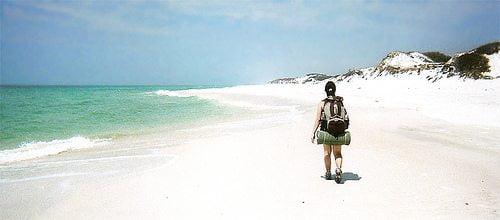

Features
Five eco-friendly tips for European travellers
For the environmentally conscious among us, extensive travel around the world can be a thorny issue – luckily there are several steps anyone can take, especially in Europe, to minimise the carbon footprint of any trip while immersing yourself in local culture.
Avoid bottled water
The bottled water industry is one of the biggest contributors to human waste on the planet – bring a refillable bottle and ask to fill up in your accommodation before any excursions. Alternatively, if you’re slumming it, or unsure of the cleanliness of the water supply in a given location (unlikely in Europe, but it does happen) then take your own means of purifying any water source you come across. This can come in the form of a tablet, pen or filter, and all are readily available online, but be sure to do your research before making any purchases.
Use public transport
As any self-respecting eco warrior knows – air transport is dirty, expensive and emits tonnes of the old C02 into the atmosphere. So why not take advantage of Europe’s excellent public transport systems and take the slower, but definitely more scenic, route during your travels? Cheap train and bus fares are readily available between most major cities on the continent, and local transport is usually reliable between smaller places.
Some of Europe’s most stunning vistas can be experienced on long train journeys and for travellers taking a tour of weeks or more in multiple locations, discount fares are often an extra draw. The Schengen agreement also makes it possible to travel without border controls between countries of mainland Europe, so you save yourself a lot of bureaucratic hassle and queue waiting as well.
Eco-friendly accommodation
Depending on your budget this might not be possible, but there are huge variety of environmentally conscious hotels, hostels, camps, guest houses and other places to stay all over the continent. A quick bit of online searching can usually find eco-friendly accommodation nearby to your destination, no matter where you want to visit. If you are unable to find any that suit your needs, a few simple steps such as turning off light switches, using secondary flushes, re-using towels and careful water management can really minimise the environmental impact of your stay without breaking the bank.
Support local businesses
Imported, fast food is expensive and mass produced, often in ways that harm the environment. Instead of eating a meal from a mega conglomerate fast food chain, why not experience the true food of the European country you’re in and eat from a street vendor or local restaurant? Besides, as any chef will tell you: the best food is always locally sourced. The same principal is true in other areas too, as buying local helps to support the economy of the area you visit and decreases the demand for expensive, environmentally impactful imported products.
EHIC card
Now this last one is not about the wider environment, but it definitely affects your own personal wellbeing. Travelling throughout Europe is not particularly dangerous, or difficult – but should the worst ever happen and an accident occurs, not being insured in whichever country you are in can turn a minor accident into a massive personal disaster, with all kinds of stress and financial troubles. Luckily, with a European Health Insurance card you’ll be right at ease and can continue to enjoy your trip, don’t forget to check the expiry date on your EHIC if you already have one as it could need renewing, safe in the knowledge you’re covered should anything untoward happen.
Oh, and last but not least, remember to enjoy your journey through the diverse, enriching and enchanting continent of Europe.


 Features11 months ago
Features11 months agoEco-Friendly Cryptocurrencies: Sustainable Investment Choices

 Energy11 months ago
Energy11 months agoThe Growing Role of Solar Panels in Ireland’s Energy Future

 Energy10 months ago
Energy10 months agoGrowth of Solar Power in Dublin: A Sustainable Revolution

 Energy10 months ago
Energy10 months agoRenewable Energy Adoption Can Combat Climate Change
















